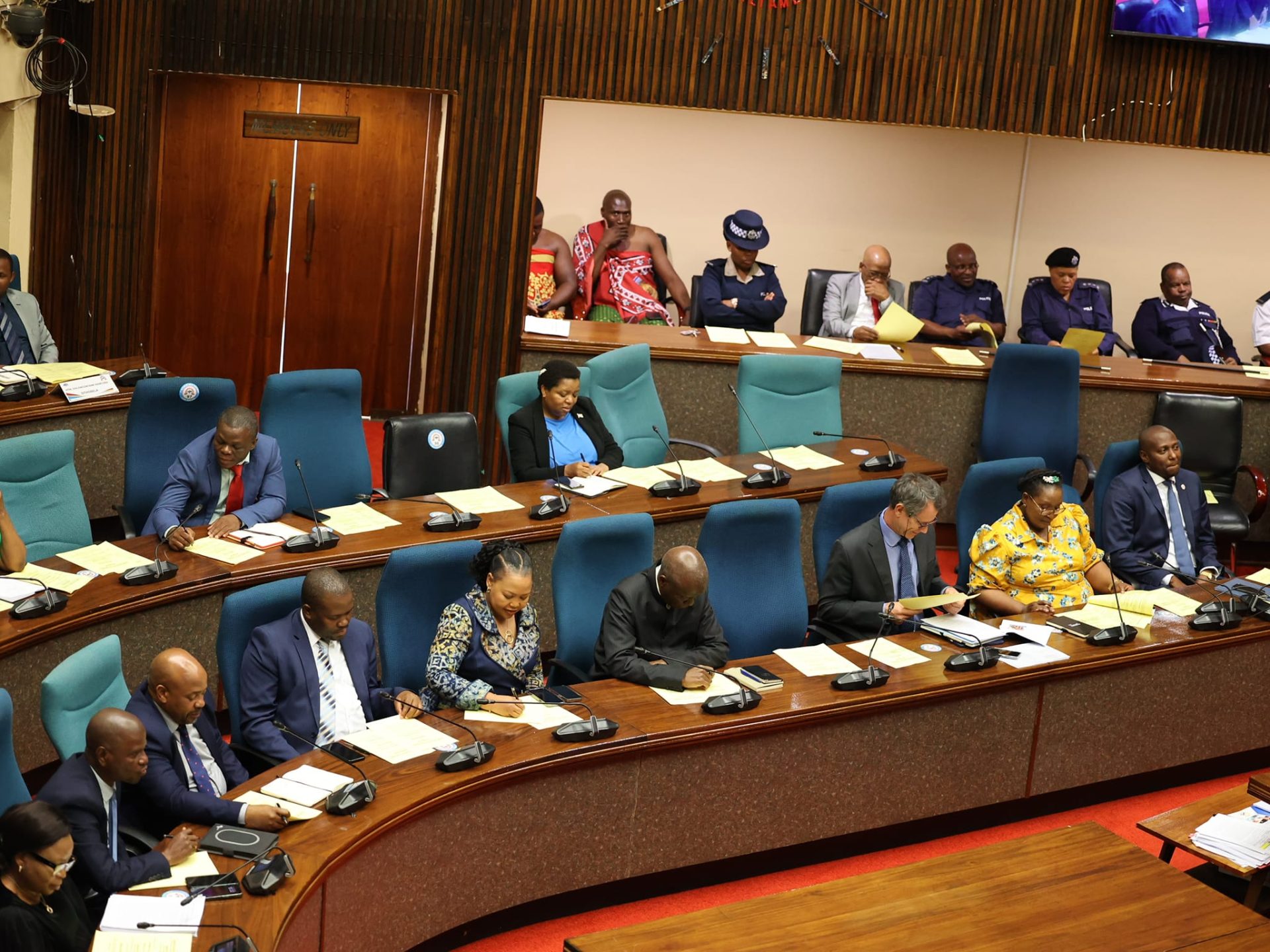by Ncaba Ntshakala
Prime Minister Russell Dlamini has reaffirmed the Government’s dedication to promoting the Tinkhundla governance system as a democratic model locally and internationally.
In his presentation of the Government Policy Statement in Parliament, Dlamini emphasized that the system, which merges Eswatini’s traditional governance with the Western parliamentary model, will be a focal point in shaping the future of Eswatini’s governance.
“Tinkhundla will be taught locally and promoted globally as a democratic system that integrates Eswatini’s traditions with His Majesty the King as the Head of State, alongside an elected Parliament,” Dlamini said.
He described Tinkhundla as the country’s unique equivalent to the county election system, with each constituency serving as a representation centre.
The government plans to strengthen Tinkhundla through optimal funding, aiming for improved grassroots development and better livelihoods.
RELATED: Tinkhundla presents E1 million funding at Ngololweni Schools
In further reforms, new legislation will be enacted to enhance local government, decentralization, and service delivery nationwide.
“This will ensure that local communities benefit directly from government programs and resources,” Dlamini added.
The government also aims to stimulate productivity by capitalizing on the Regional Development Fund and other empowerment initiatives, with plans to improve their efficiency and disbursements.
On education, Prime Minister Dlamini announced a comprehensive review of the national education system, aiming to restore Eswatini’s position as a regional leader in academic excellence.
“Education is indispensable for a prosperous future of Eswatini,” he said, emphasizing the need to improve capacity for special education and teacher training.
The review will cover the entire educational spectrum, from pre-primary to tertiary education, with a focus on revitalizing the University of Eswatini to meet market demands.
Dlamini revealed that the government will work towards establishing a new university of technology and innovation, designed to attract enrollment from the SADC region and beyond.
This new institution aims to provide relevant, future-oriented programs that align with both local and regional needs.
“The Government will not only produce more graduates but will promote relevant programs essential for the country’s future and for exporting human capital,” Dlamini stated. Furthermore, the education curriculum will be adapted to reflect African values and instil a mindset of success.
Vocational education will also see significant improvements, with a stronger emphasis on business acumen and industry-relevant programs, supported by the construction of new vocational institutions.

Moreover, Prime Minister Dlamini addressed the ongoing battle with HIV/AIDS, noting that despite significant progress, the disease remains a major challenge, especially among young girls.
He disclosed that around 4,000 people are infected with HIV annually, a figure that highlights the urgency of the issue.
To combat this, Dlamini announced that the government would leverage the health sector’s existing investments to ensure widespread access to quality healthcare services.
The Ministry of Health will be restructured to enhance its efficiency and better meet modern health demands.
A focus will be placed on disease prevention, protection from global pandemics, and the establishment of a National Health Insurance.
RELATED: E1 billion worth of Microprojects uplifting communities
NERCHA’s mandate will be expanded to cover pharmaceutical procurement and Non-Communicable Diseases,” Dlamini said, reflecting the government’s efforts to broaden the scope of healthcare services.
He also highlighted plans to transform the Central Medical Stores (CMS) into a semi-autonomous organization to improve accountability and service delivery.
Additionally, the Prime Minister revealed plans to build a National Referral Hospital for highly specialized medical cases which is aimed at reducing the country’s reliance on the costly Phalala Fund for external medical care.
The capacity of the National Health Council will also be strengthened through partnerships with international organizations, such as the Center for Disease Control (CDC), to boost research and medical training.


